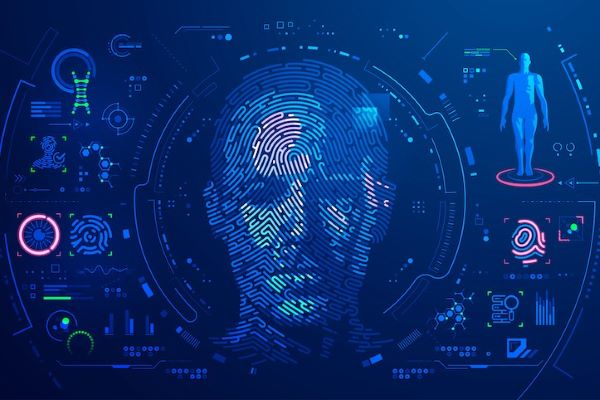Exploring Information Technology – One Byte at a Time
Information technology – computer software, hardware, networking, and everything in between – drives the modern world. It’s hard to move through life without interacting with computers, computer programs, algorithms, or connected devices. They permeate our homes, our workplaces, and even our public spaces.
The dependence on, and complete saturation of, technology necessitates a small army of knowledgeable technicians with industry certifications, researchers, analysts, and specialists in every sector to ensure everything runs smoothly. This includes building, leveraging, and maintaining a whole host of technologies for a whole host of reasons.
A Vast and Varied Discipline
From intelligence analysts and network administrators to computer repair technicians and webmasters, information technology specialties run deep and wide. Thanks to technology’s reach into even the most resistant sectors, corporations and institutions of all shapes and sizes need people with an IT degree, whether that's an associate degree, a bachelor's degree, or a master's degree.
And while the discipline has splintered into various specialized degrees to accommodate a wide assortment of corporate, academic, and military interests, each one shares the same bedrock of skills: namely, a working knowledge of computer hardware, computer programming, database management, network administration, information security, and data analysis.
The Many Degrees of IT (And the Careers They May Unlock)
This select list of IT degree options will give you a good idea of the vast array of potential opportunities within information technology. While a bachelor’s degree in information technology can open up a number of career paths, a more specialized bachelor's degree (a cybersecurity degree, for example) can unlock more specific careers.
A bedrock degree, as a student seeking an IT bachelor's degree you can expect to learn computer programming, database and network administration, security, and analysis. IT degree programs typically allow you to specialize in areas such as network administration, information systems management, or network security.
Here are some of the jobs that graduates with an IT degree might hold:
- Technical support
- IT support specialist
- QA tester
- Web developer
- Programming specialist
- Data analyst
- Computer systems administrator
- Database administrator
- UX designer
- Engineer (hardware, software, cloud)
- IT architect
- Information security engineer
A bachelor’s degree or master’s degree in information technology management melds technical know-how with business acumen. Primarily meant for those looking to move into a corporate environment, the IT management degree program creates more specialized opportunities than an IT degree (no management).
These are the types of career paths that may be open to those with an IT management degree:
- Data management
- IT project manager
- Computer systems analyst
- Computer and information systems manager
- Network administrator
- Information security specialist
- Chief Technology Officer (CTO)
- Chief Information Officer (CIO)
At the forefront of keeping all kinds of data safe, professionals in cybersecurity are charged with predicting, preventing, and responding to electronic intrusions. This becomes increasingly important as more and more industries, records, and information of all sorts, become digital. In fact, according to the U.S. Bureau of Labor Statistics, employment growth in cybersecurity is projected to grow by 32% from 2022 to 2032, far outperforming the 3% growth for all other U.S. occupations.
Here are the specific jobs a graduate with a cybersecurity bachelor's degree or master's degree can explore:
- Information security (analyst or manager)
- Cybersecurity engineer
- Computer systems administrator
- Network engineer
- Security architect
- Penetration and vulnerability tester
- IT security auditor
- Vulnerability assessment analyst
- Computer networks defense analyst
The study of software, hardware, programming, and processes (and the theoretical underpinnings of each), a computer science degree program is a more technical degree that can lead to software development, UX design, or engineering. Interestingly, some bachelor’s programs – such as American Military University (AMU) – also offer a bachelor of arts, in addition to a bachelor of science, in computer science. The bachelor of science is the more typical degree program for computer science, but AMU’s BA version is built around digital humanities, media communication, and interactive design.
While qualified to do a number of IT jobs, those with a bachelor's degree in computer science are especially equipped to fill the following roles:
- Software developer
- Front-end developer
- Full stack developer
- Java developer
- Application developer
- Mobile developer
- Database developer
- UX designer
- Software engineer
- Network security engineer
- Computer network architect
- Software architect
Unlike study for an information technology bachelor’s degree, the field of computer technology prepares individuals for technical positions, but with less math and theory. The computer technology degree program is practical and career-focused. Students who graduate with a bachelor’s degree in computer tech will be well versed in web development fundamentals, programming, communication and network technologies, database systems, systems administration, and information security management. Additionally, these degree programs aim to build soft skills, like interpersonal communication. These programs can also serve as valuable opportunities to prepare for industry certifications.
Here are the professions that computer technology graduates are prepared to do:
- Database analyst
- Cybersecurity strategist
- Web developer
- Webmaster
- Computer systems engineer
- Computer system administrator
- Software developer
- Network designer
- Network analyst
- Computer support specialist
- Information technology consultant
Data science is a math-heavy degree program that involves the analysis of large sets of data to glean insights that will be used to inform decisions in a multitude of sectors, including business, finance, economics, engineering, healthcare, and the physical and social sciences. Utilizing specialized computer hardware and software, data scientists are typically in charge of all aspects of the process – data identification, collection, and interpretation.
A data science degree may be sought by those interested in preparing for the following roles.
- Data analyst
- Data scientist
- Machine learning engineer
- Business intelligence analyst
- Financial analyst
- Marketing analytics manager
- Quantitative analyst
- Risk analyst
- Data visualization engineer
- Application architect
In addition to the regular communication and technology infrastructure you’d expect at any organization or business – computers, networking, and the like – the military has need for specialized IT professionals with industry certifications. Namely, cybersecurity specialists, cyber operations specialists, and database administrators, according to ZDNET.
As the edges of the modern battlefield continue to expand into cyberspace, the need for specialists in cyberwarfare only increases. There’s even a Cyber Science major at West Point that turns out cyber officers. In 2020, there were 11,000 cyberspace operations officers between the Air Force and the Space Force.
And each branch of the military, from the Coast Guard to the Marines, has Military Occupational Specialties (MOS) that are IT-related. From the Space Force’s client systems guardians and the Army’s cyber operations specialists to Marine Corps’ cyber network operators and the Coast Guard’s information systems technicians, IT roles in the military are front and center.
Top Information Technology Degree Programs
All Related Programs
What About an Online Information Technology Degree?
There are a multitude of online IT degree programs with a proven record of academic excellence. Post-COVID, there are more opportunities for getting your degree online.
IT has benefited from the leap forward in virtual communication technologies. As for reputation, earning a degree online is increasingly seen as equal to more traditional paths to graduation and, in fact, employers may see an online degree as proof of excellent time management skills as a large number of online students are often full-time workers.
While other disciplines might not lend themselves to online learning quite so well, tech-heavy, computer-focused IT programs are well paired. However, students often pursue a degree online for reasons that transcend discipline.
More choice, greater flexibility, and quality instruction are three of the primary reasons that students seek out an online bachelor’s degree. So, when you consider whether to look for an online IT degree program, these are among the top reasons why students consider an online path versus a more traditional one:
Choice
Whether that’s choice of school, program, instructors, instructional method, time commitment (semesters, trimesters, quarters, etc.), or just about anything else, students have more options when they aren’t tied to a physical place. When students don’t want to upend their lives or “settle” for a college that’s closer to home, an online path becomes much more attractive.
Instructional Quality
Like students, not all instructors want to pick up their entire lives and start over somewhere new – this really limits the talent pool for more traditional colleges. However, when an institution is online and can start pulling in professors and practitioners from all over the country, students benefit from the versatility of experience instructors bring to the learning. For example, at AMU a number of our faculty are active in the fields they teach, adding a practical dimension to their instruction.
Flexibility
One thing that draws many students is the fact that an online education provides substantial flexibility. At AMU, classes are asynchronous. That means there are no set class times or lectures. Also, classes start every month, which means students have more control over their schedule and can fit their education into their lives, not the other way around.
From software development and web development to data management and database management, a bachelor’s degree in information technology serves as preparation for a wide range of professional responsibilities. However, there are some career paths that require master’s degrees.
Top among these professions are teaching posts and high-level positions managing departments or projects. Other careers that benefit from master’s degrees are information security analysts and computer systems administrators, especially if the organization is larger or more well known.
Also, if you are an aspiring Chief Technology Officer (CTO) or Chief Information Officer (CIO), a graduate degree is just about mandatory.
Finally, a master’s in cybersecurity is a specialized graduate program that focuses on cybercrime and the ins and outs of network security. This master's degree can help graduates qualify for research positions and senior-level roles as cybersecurity analysts and engineers and information security managers.

Related Student Organizations
At AMU, there are several ways for students to connect with others seeking
an IT degree. The student organizations associated with information technology
are:
Association for Women in Science (AWIS) – this organization promotes the presence and visibility of women in science, technology, engineering, and mathematics (STEM)
Women in STEM (wSTEM) – this organization provides networking opportunities and support for women pursuing fields in science, technology, engineering, and mathematics (STEM)
Epsilon Pi Tau Honor Society – built around scholarly achievement in information technology, information systems security, and cybersecurity (of note: there is an academic requirement for admission)
Information Technology Resources

What Is Information Technology? Each Generation’s Thoughts

What Is AI Governance? The Reasons Why It’s So Important

Artificial Intelligence in Crime Detection: How It’s Useful

Additional Information Technology Resources
Frequently Asked Questions
The term “information technology” encompasses a broad range of degree programs, disciplines, careers, and roles including cybersecurity, data science, business analytics, computer science, homeland security, intelligence studies, digital forensics, hardware, software, cloud computing, virtual computing, mobile computing, networking, and a whole lot more.
According to the College Board, information technology will be a degree that “focuses on how information and computing systems support business, research, and communication needs.” When researching bachelor's degree options, students should consider the array of disciplines that involve information technology.
When seeking next-level knowledge and greater responsibility, a master’s in information technology or a related discipline may be in order.
The best information technology bachelor's degree depends on a student’s personal interests and professional goals. If, for example, a student is most interested in cybersecurity, they should pursue a bachelor's degree in cybersecurity.
However, if a student is undecided beyond a general interest in computing, a bachelor’s degree in information technology is a good foundation and, according to Forbes, “is often the first step to landing a career in the field.”
According to U.S. News & World Report, the growth of information technology jobs between 2021 and 2031 is expected to outpace all other occupations, in and out of tech. When considering college study, a prospective student should also think about the opportunities that emerge to connect with both fellow students and faculty members.
They become valuable partners in your learning.
Learn More
If you are interested in learning more about an online IT degree from American Military University, be it an associate degree, bachelor's degree, master's degree, industry certifications, or a micro-credential, be sure to check out the complete list of programs. If you have any questions about our information technology bachelor's degrees, our information technology master's degrees, our online courses, or the online learning experience, we have advisors ready to assist you.
And remember, courses start monthly.





